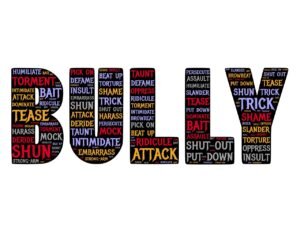It May Be Mean, False, Scurrilous and Outrageous! But It Probably Isn’t Libel or Slander
By Gary Daddario
I was intrigued, but not surprised, to see that “libel and slander” was one of the headline topics at CAI’s National Law Conference this year. Our firm gets several calls every month from board members who want to sue owners for saying mean, nasty, unfair, untrue, “slanderous” or “libelous” things about them. CAI’s attention to the issue suggests that our experience isn’t unique – this is a national concern, and it’s not hard to understand. Social media has unleashed the inner critic – or inner bully – in many people, freeing them to say on Twitter, in e-mails, on Facebook and in blogs things they would be less comfortable saying in person, and allowing them to broadcast their diatribes instantly to other members of their Facebook and Google groups, throughout the blogosphere and beyond.It is little wonder that board members, who volunteer for a thankless task, feel aggrieved, want to sue, and are frustrated when condo association attorneys almost always advise against it.The first point to understand is the difference between libel (which is written) and slander, which is spoken. The second point: Both are extremely difficult to prove.
Social media has unleashed the inner critic – or inner bully – in many people, freeing them to say on Twitter, in e-mails, on Facebook and in blogs things they would be less comfortable saying in person, and allowing them to broadcast their diatribes instantly to other members of their Facebook and Google groups, throughout the blogosphere and beyond.It is little wonder that board members, who volunteer for a thankless task, feel aggrieved, want to sue, and are frustrated when condo association attorneys almost always advise against it.The first point to understand is the difference between libel (which is written) and slander, which is spoken. The second point: Both are extremely difficult to prove. The law creates three categories of plaintiffs for purposes of bringing defamation actions:
The law creates three categories of plaintiffs for purposes of bringing defamation actions:
- Private individuals – the largest group.
- Public figures – elected or appointed officials, actors, business leaders and others known to the public because of the positions they hold or notoriety they have achieved.
- Limited public figures – individuals who have put themselves in public view by speaking out on public issues or by serving in a voluntary position. Condominium board members and managers are in this group.
Private individuals have the lowest legal bar to clear. They must demonstrate that statements about which they are complaining:
- Were about the plaintiff;
- Were false;
- Were made publicly;
- Were made negligently – with what the law terms “a reckless disregard for the truth; and that
- The plaintiff suffered harm as a result.
A Higher Standard
Public figures and limited public figures must meet a much higher standard. In addition to establishing all the components of a libel/slander action described above, plaintiffs in these groups must also establish that the statements were made maliciously, with knowledge that they were false. Malice is particularly hard to prove. It requires the defamation equivalent of a smoking gun. An email from an offending owner, saying, “I know John didn’t really steal any money but I don’t care. I hate him and will do anything to have him removed from the board,” would certainly provide evidence of malice. But the odds that you will stumble across this e-mail are about the same as your odds of winning the lottery – probably worse.Establishing damages is also difficult for public and limited public figures. Board members might contend that false statements caused them to lose an election, but they aren’t paid for their service, so where’s the financial harm? A board member who owns a small business might lose a client who learns of the negative comments and decides not to do business with the board member as a result, but again, this isn’t very likely.
Malice is particularly hard to prove. It requires the defamation equivalent of a smoking gun. An email from an offending owner, saying, “I know John didn’t really steal any money but I don’t care. I hate him and will do anything to have him removed from the board,” would certainly provide evidence of malice. But the odds that you will stumble across this e-mail are about the same as your odds of winning the lottery – probably worse.Establishing damages is also difficult for public and limited public figures. Board members might contend that false statements caused them to lose an election, but they aren’t paid for their service, so where’s the financial harm? A board member who owns a small business might lose a client who learns of the negative comments and decides not to do business with the board member as a result, but again, this isn’t very likely.
Hard to Prove – Easy to Defend
While board members will have a very difficult time proving a libel or slander claim, the owners they accuse may present several defenses against it. These include:
 Truth. Truth is an “absolute defense” against a defamation claim. If the statements are true, you have no cause of action based on them.
Truth. Truth is an “absolute defense” against a defamation claim. If the statements are true, you have no cause of action based on them.- Freedom of speech. Defendants can argue – and almost certainly will – that they were simply exercising their right to express their opinion. “I didn’t say John was a crook; I only said it is my opinion that he might be.”
- Privilege. The comments are protected because the individual has a specific right to make them. There are two categories of privilege:
- Absolute privilege. This usually applies to public officials, who can say their positions allow them to make statements -true or not - about others,
- Qualified privilege. Defendants might claim that the statements were necessary to protect their own interest, the interests of a third party, or the interests of the public.
Alternative Strategies
It is a lot easier for defendants to refute a defamation claim than it is for plaintiffs to prove one. That is one reason I almost always advise against this litigation - because the odds of winning are so slim. But it’s not the only reason. If the goal is to calm down the angry folks who are hurling invectives and accusations at the board, litigation won’t help. It is more likely to inflame tempers than to cool them. Boards have to find other ways to deal with the problem.
 Turn the other cheek. If other owners in the community aren’t paying any attention to the dissidents, then adopting the “sticks and stones may break my bones” philosophy may be the best strategy. Refuting the attacks might attract attention they wouldn’t otherwise receive. This doesn’t work in all situations, however. Lies that are unchallenged may be accepted as facts. If the attacks are hitting home with other owners – eroding trust in the board and possibly impeding its ability to govern ─ the board will have to respond, but it should do so judiciously and only when essential to protect the association. Responding to petty criticisms will make the board seem petty. If the board seems overly sensitive or overly defensive, owners may begin to suspect it has something to be defensive about. Boards should respond when necessary, but they should be careful not to “protest too much.”
Turn the other cheek. If other owners in the community aren’t paying any attention to the dissidents, then adopting the “sticks and stones may break my bones” philosophy may be the best strategy. Refuting the attacks might attract attention they wouldn’t otherwise receive. This doesn’t work in all situations, however. Lies that are unchallenged may be accepted as facts. If the attacks are hitting home with other owners – eroding trust in the board and possibly impeding its ability to govern ─ the board will have to respond, but it should do so judiciously and only when essential to protect the association. Responding to petty criticisms will make the board seem petty. If the board seems overly sensitive or overly defensive, owners may begin to suspect it has something to be defensive about. Boards should respond when necessary, but they should be careful not to “protest too much.”- Respond in writing. Send an e-mail to owners or circulate a memo noting that the board has heard some owners are concerned about the issue at hand and wants to address those concerns. The memo should be detailed, factual and unemotional. Ideally, it won’t even mention the dissidents, but simply provide information that counters the allegations they are making. As long as you don’t mention the dissidents by name, you should be able to avoid a counterclaim that you are harassing or libeling them. The message should emphasize that the board is committed to acting in the interests of the association and encourage owners who have additional questions to contact the board directly.
- Invite owners to attend an open meeting. Let the dissidents make their allegations in public, and call them out publicly. If they say the board is stealing money, present the financial records detailing how funds are being spent and challenge the dissidents to provide evidence to the contrary. This public airing may encourage owners who have been silent to support the board. The need to defend their charges in public my discourage dissidents from making untrue statements about the board in the future.
 Enforce other provisions of the governing documents. If dissidents are annoying other residents – flooding them with e-mail messages or slipping notes incessantly under their doors – and if residents are complaining about that behavior, the board might enforce association rules prohibiting owners from creating a nuisance, and fine the dissidents for the violations. This is not likely to be the most effective remedy, however. Dissidents may ignore the fines or challenge them. Also, the courts have ruled definitively that fines are a tool designed to encourage compliance. You can’t keep doubling down on them endlessly; if they aren’t effective quickly, you’ll have to ask the court to intervene.
Enforce other provisions of the governing documents. If dissidents are annoying other residents – flooding them with e-mail messages or slipping notes incessantly under their doors – and if residents are complaining about that behavior, the board might enforce association rules prohibiting owners from creating a nuisance, and fine the dissidents for the violations. This is not likely to be the most effective remedy, however. Dissidents may ignore the fines or challenge them. Also, the courts have ruled definitively that fines are a tool designed to encourage compliance. You can’t keep doubling down on them endlessly; if they aren’t effective quickly, you’ll have to ask the court to intervene.
Other covenants may come into play. If the individuals haranguing the board have contacted vendors, you might charge them with usurping the board’s authority or with interfering with contractual relations. Neither would be a legal slam-dunk, but both would be easier to establish than a defamation claim. That’s not saying much, of course, given that defamation claims are so fiendishly difficult to win.
- Seek an injunction prohibiting the board’s critics from making false statements. This is more a theoretical option than a practical one. In practice, courts are extremely reluctant to prohibit the exercise of free speech by barring comments before they are made. The board would prevail here only if it could prove that it is likely to demonstrate the damages that would support a libel or slander claim.
 Call the police. If critics don’t simply make false statements about board members but harass them, threaten them or make them feel threatened, police intervention may be justified. If the behavior of critics crosses the line and involves actions and not just statements, it becomes a police matter – but only if you have a genuine concern for your safety or well-being.
Call the police. If critics don’t simply make false statements about board members but harass them, threaten them or make them feel threatened, police intervention may be justified. If the behavior of critics crosses the line and involves actions and not just statements, it becomes a police matter – but only if you have a genuine concern for your safety or well-being.- Increase transparency. On the theory that ‘where there’s fire, there’s smoke,’ where there is angry criticism of a board, there is often, though not always, a lack of information and a need for better communication with owners. So look beyond the terrible things critics are saying about the board and try to understand why they are so angry. Review your communications strategies and make sure you are doing everything you can to keep owners informed about what the board is doing and to encourage their interest and involvement in the community. Transparency and communication are powerful antidotes to angry, unwarranted criticism and a board’s most effective shield against it.
